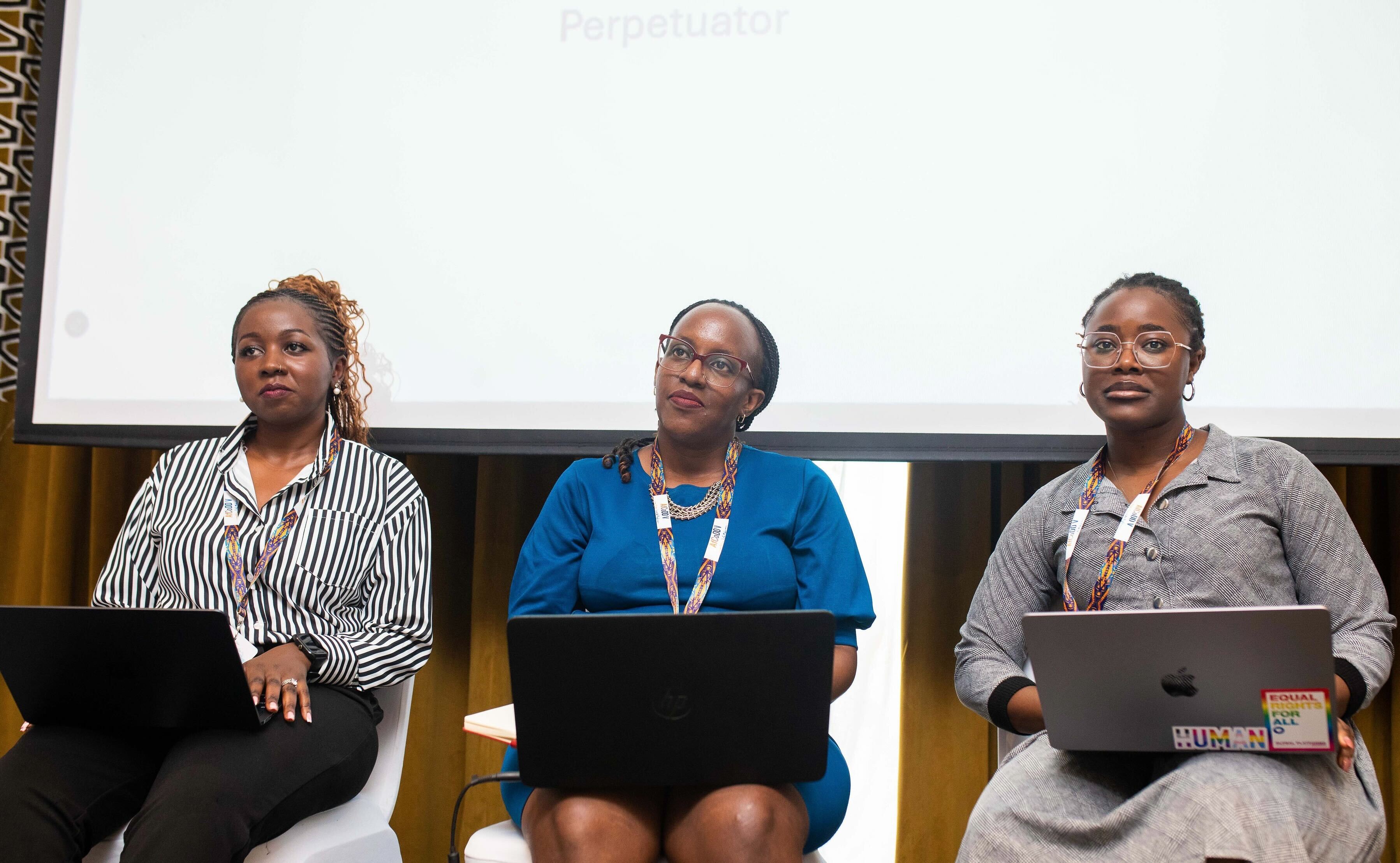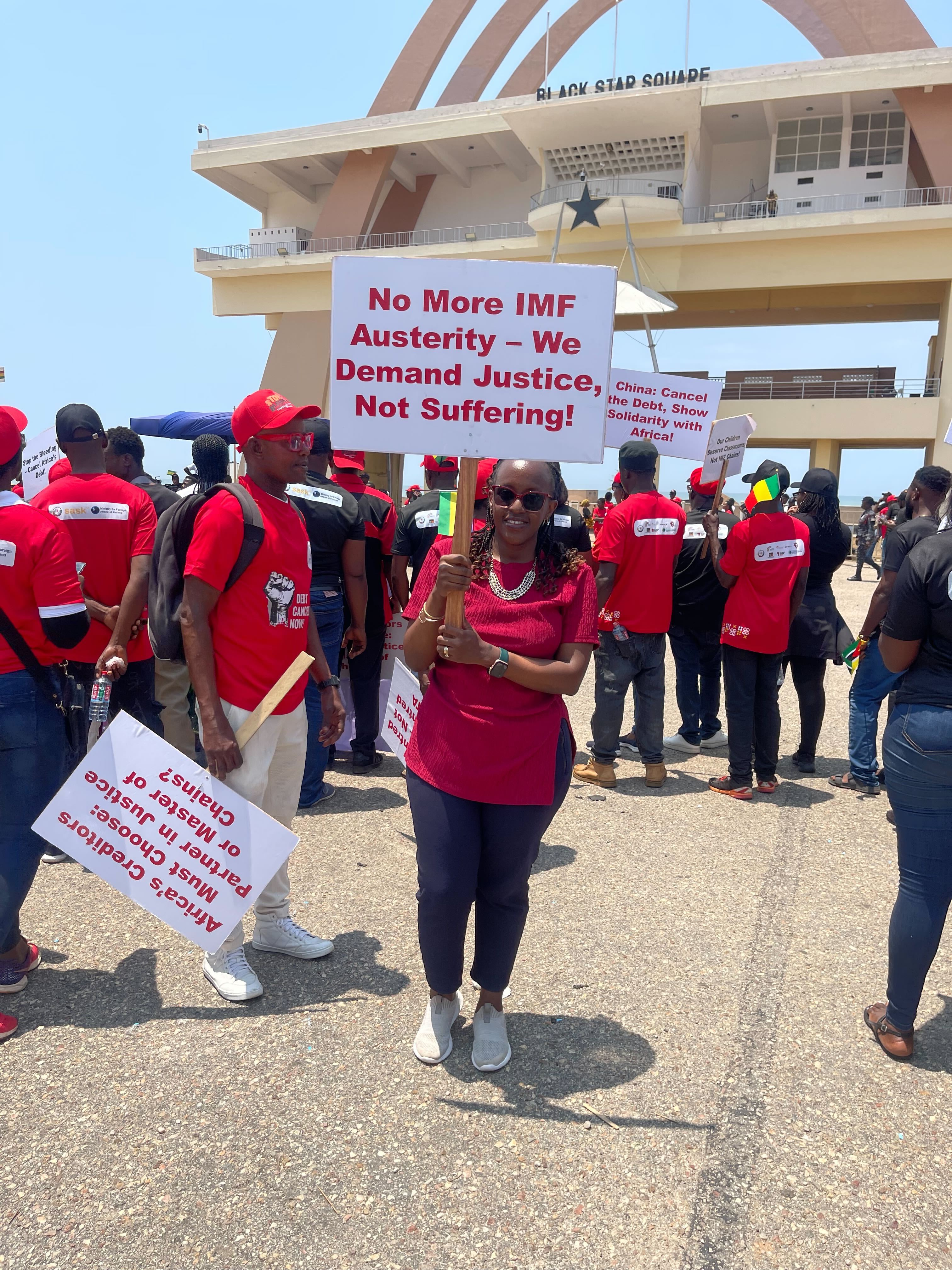At the 5th African Conference on Debt and Development (AfCoDD V) in Zimbabwe, where the theme was reparations and reparative justice, CESR’s Peninnah Mbabazi joined allies from across the continent to call for debt cancellation, rights-based climate finance, and a new African financial architecture. At the conference, CESR also launched Decoding Climate Finance, a guide to help activists and policymakers challenge injustice in the global system.
By Peninnah Mbabazi, CESR’s Program Associate
Africa contributes only 2 to 3 percent of global emissions but faces some of the harshest climate impacts. From prolonged droughts to deadly floods, millions of people across the continent are living with disasters they did not cause. At the same time, governments spend more on debt repayments than on essential services. In Zambia, for example, external debt has climbed above 23 billion dollars, more than half the country’s GDP, leaving little fiscal space for healthcare or education.
These overlapping crises are rooted in the same history of injustice. Centuries of resource extraction, slavery, colonial exploitation, and unequal global governance continue to shape Africa’s debt and climate vulnerability today. What is often presented as separate issues (financial insolvency on one side, environmental catastrophe on the other) are in fact two fronts of the same systemic problem.
AfCoDD V was convened against this backdrop. Organized by the African Forum and Network on Debt and Development (AFRODAD), the annual conference has become the continent’s leading platform for governments, civil society, and social movements to debate alternatives to Africa’s debt crisis and to design a financial system grounded in justice and sovereignty. From the opening sessions, it was clear that the demand for reparations is no longer about moral appeals alone. It is about shifting power and reclaiming the resources needed for Africa to chart its own future.
Reparations as a pathway to justice
With 2025 marked as a Jubilee Year for debt, African movements are reframing reparations beyond financial transfers. Debt cancellation should be recognized as reparations, alongside ecological restoration, the phaseout of fossil fuel subsidies, and investment in decarbonized economies.
At CESR, we insist that climate finance must be governed by human rights obligations. Principles such as common but differentiated responsibilities and the polluter pays rule are not voluntary: they are binding under international law. Recent opinions from the International Court of Justice and the Inter-American Court of Human Rights (IACHR) reinforce this. Climate finance must be rights-based in both form and function: empowering those most affected, addressing historical wrongs, and restructuring the systems that caused the crisis.
At AfCoDD V, CESR launched Decoding Climate Finance, a new guide to help activists and policymakers expose injustices in the current system and push for rights-based alternatives. The guide provides tools to measure injustice, connect it to human rights obligations, and strengthen advocacy strategies that shift power.
Peninnah at the Pan-Africa Debt Rally, part of AFCODD, organized by AFRODAD, Tax Justice Network Africa, Trust Africa and trade unions. The rally kicked off at Kwame Nkrumah Circle in Accra, Ghana, bringing together civil society across the continent in a powerful display of solidarity.
What is at stake in 2025
With the African Union now a permanent member of the G20 and South Africa holding the presidency, Africa has an unprecedented opening to push for systemic change. The upcoming UN Framework Tax Convention negotiations in Nairobi and the follow up to the African Climate Summit provide critical platforms for a collective African vision of financial transformation.
CESR’s and civil society proposals include:
Debt justice
-
Cancel illegitimate debt across all creditors.
-
Add catastrophe clauses to suspend payments during crises.
-
Reform IMF and World Bank debt assessments to include climate and human rights risks.
-
Frame sovereign debt relief explicitly as reparations.
Climate finance justice
-
Mobilize resources through progressive taxes on fossil fuel companies, wealth, aviation, and shipping.
-
End fossil fuel subsidies and redirect funds to equitable climate solutions.
-
Deliver climate finance as grants, not loans, from Global North countries under a reparations framework.
Climate finance is ultimately about power. Current rules reflect colonial legacies, corporate capture, and unequal governance. To achieve climate and debt justice, these rules must be rewritten. Reparations look forward. They restore dignity, sovereignty, and resilience. By advancing a rights-based financial architecture, Africa has the chance to lead the world toward an economy that prioritizes people and planet over profit.

